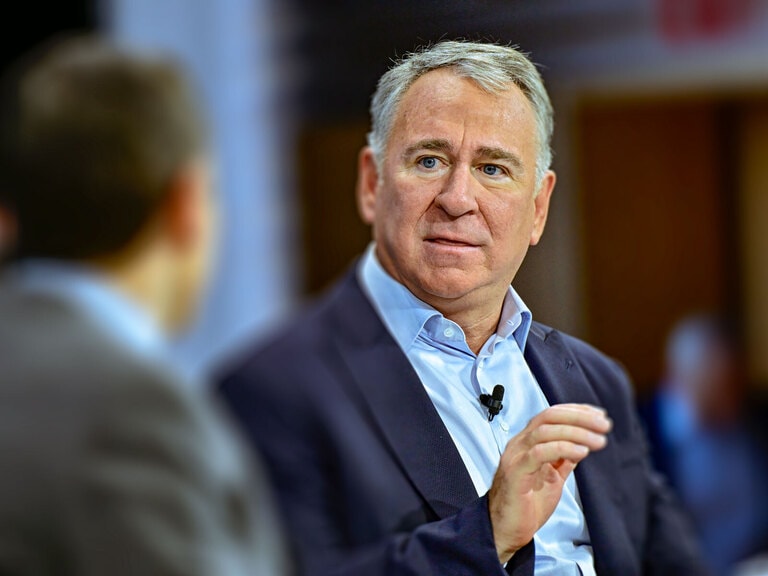The ETFMG Prime Mobile Payments ETF lagged behind the Nasdaq during March, thanks largely to the unequal fall-out of the banking crisis, which shook financial stocks but proved a tailwind for tech. Top-ten holding Block has been targeted by short-sellers accusing it of facilitating fraudulent payments.
- ETFMG Prime Mobile Payments ETF fell in March but may be on verge of break-out.
- Short seller allegations weigh on Block.
- Banking crisis sent Fidelity down 13% in single day.
The ETFMG Prime Mobile Payments ETF [IPAY] entered a bullish trend during the last days of March, surpassing its 200-day moving average on the final day of the month.
Despite falling 1.6% through March, IPAY finished the month on a high with gains on four of the last five sessions, including all of the last three.
IPAY has gained 6.1% year-to-date, but its tech-heavy portfolio has underperformed the Nasdaq Composite through March and the year, with the index gaining 6.7% in the past month and 16.8% through 2023 so far.
The fund attempts to replicate the performance of the Prime Mobile Payments Index, a benchmark for investors seeking to track the mobile and electronic payments sector. It is the first ETF to focus on the mobile payments industry.
A short seller move against one of the fund’s top holdings has weighed on its performance over recent days, while fall-out from the banking crisis at the start of March has contributed to the fund’s underperformance relative to the broader technology sector.
Hindenburg puts SQ on the block
Block [SQ], the mobile payments platform managed by Twitter co-founder Jack Dorsey, came under fire from short seller Hindenburg Research on 23 March.
Hindenburg accused Block of facilitating fraudulent transactions and artificially boosting its user numbers. According to its statement, the accusations are based on “interviews with former employees, partners, and industry experts”, as well as Freedom of Information Act and public records requests.
Block shares fell 14.8% on the day Hindenburg published its statement, although, despite slipping further the following day, the stock has since rallied to recover 13.1% since the 24 March low close. The recovery was driven in part by a refutation of Hindenberg’s allegations, in which Block stated that it had verified the identities of users behind 44 million of the 51 million transactions on its Cash App as of 2022.
Block’s stock has gained 9.2% year-to-date, but is down 10.5% in the past month.
Among IPAY holdings, Block is the seventh-largest as of 1 April, accounting for 4.11% of the fund’s net assets. IPAY fell 0.7% on the day of the Hindenburg report, suggesting that Block’s woes may have had an adverse impact on the fund’s performance.
Banking crisis drags Fidelity
Part of the reason IPAY has underperformed the Nasdaq through March is the unequal fall-out of the banking crisis that took place in the first half of the month. The technology sector initially emerged as a haven against the crisis, then led gains of 2.9% in the S&P 500 between 8 March and the month’s end, with the index’s technology sector gaining 8% during that period.
Conversely, the crisis acted as a headwind to financial stocks. Fidelity National Information Services [FIS], IPAY’s eighth-biggest holding, was particularly badly hit.
Its shares fell 12.9% on 13 March, as news emerged that the payments processor derived a combined $40m to $50m revenue annually from Signature Bank and First Republic Bank. While the Fidelity share price has since recovered 9.1% as fears of a broader crisis have subsided, the stock is still trading 13.6% below where it started the month, and is down 19.3% year-to-date.
As of 1 April, Fidelity shares account for 3.27% of IPAY’s net assets.
Barclays lowered its price target for Fidelity to $58 from $68 on 26 March, noting that, while regional bank closures are unlikely to impact more than 1% of Fidelity’s revenue, there was still a compression of multiple markets occurring as a result of the fallout.
In short, while two of ETFMG Prime Mobile Payments ETF’s top holdings have had a rocky few weeks, as they begin to rebound from their respective crises they could push the ETF into a stronger position than it has seen for a while.
Continue reading for FREE
- Includes free newsletter updates, unsubscribe anytime. Privacy policy





